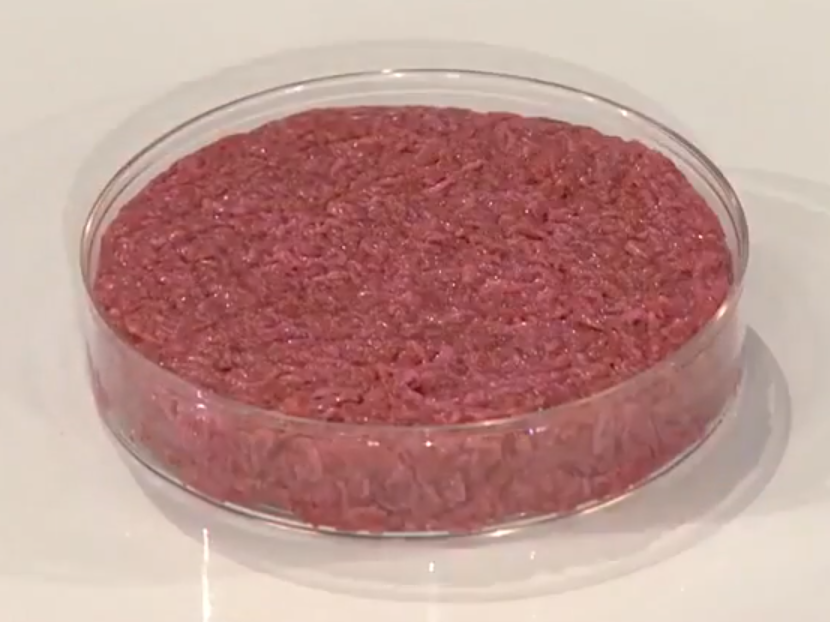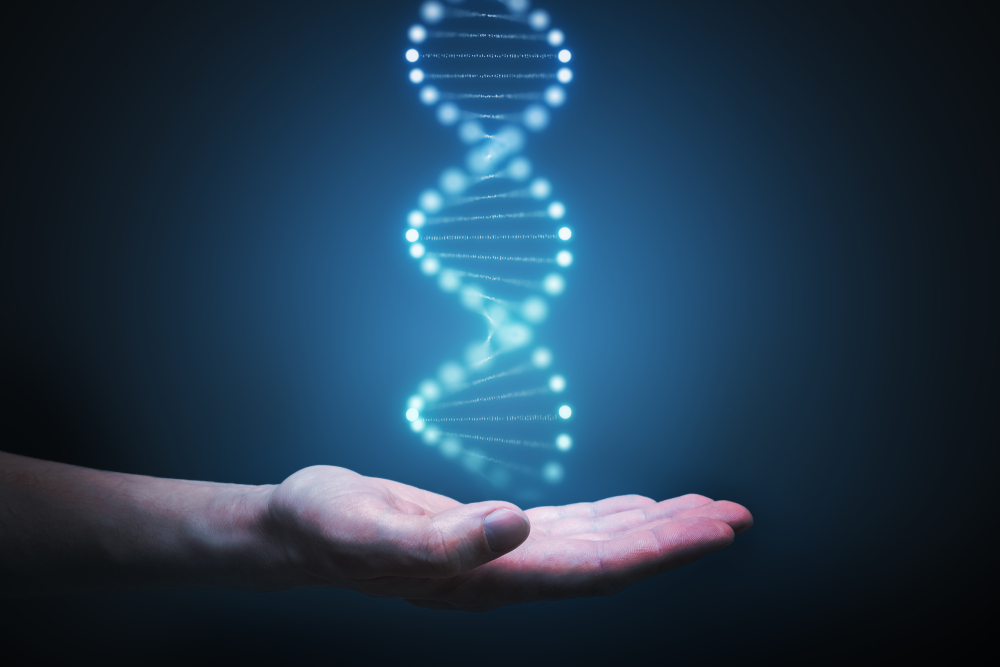We’re entering a brave new world of food, one that has profound consequences for our ability to stay healthy by consuming unadulterated or non-genetically altered foods.
THE TOPLINE
- A growing movement in synthetic biology (synbio) and artificial intelligence (AI) aims to transform the food system, replacing traditional farming with lab-grown foods like synbio meat, plant cell cultures, and precision fermentation, all of which raise concerns over their health effects and long-term safety.
- Companies like Meatable claim their synbio products are superior to natural foods, but these claims are dubious or at least premature given their novel composition and nutritional profile compared to naturally grown foods, and the potential presence of compounds new to science.
- The complexity of natural food systems is underestimated, and there is insufficient understanding of the long-term health impacts of synbio foods, making it risky to consider them as bioequivalent to traditional foods and safe for consumption.
Is the grass really greener on the other side?
There is a growing movement that seeks to override millennia of evolution and supposedly improve upon Nature through the use of synthetic biology (synbio) and artificial intelligence (AI). Proselytizers of these technologies talk of transforming the food system by abandoning farming, helping to solve climate change, and fighting food insecurity. Yet there are fundamental problems with both the technologies themselves and the justifications used to support them—ones they’d rather you didn’t know about.
It may be easy to laugh off the mammoth meatball made from Woolly Mammoth DNA, but, the truth is, special interests are working to make synbio the tech platform of a transformed human food system moving forward—where farms are replaced with fermentation tanks—in the name of protecting the environment and overcoming hunger.
There are dozens of start-ups attracting huge sums of money to manufacture synbio foods. This is a whole new era in genetic modification—think of it as GM 2.0. No longer are genes from one organism being inserted into a different organism to achieve certain characteristics; instead, the genes within a given organism are being edited, like videotape. The problem is we don’t fully understand the language of the genetic code and any tampering with it can induce effects on genetic expression that are unpredictable and unintended.
We now also have “precision fermentation” whereby genetically engineered (GE) yeast and bacteria are programmed to become factories for certain compounds and then placed in fermentation tanks to grow those cells. Thus we arrive at lab-grown meat.
Synbio and real meat aren’t the same!
Take a company like Meatable, which claims to be “pioneering the new natural”—an astounding phrase emblematic of the audacity of this movement. They claim their synbio meat is actually superior to real meat! In the FAQ section of its website, the company states: “It will taste like the meat you already know. In fact, because so much industrial farming focuses on efficiency over the health of the animals being reared, it should taste better.” Tasting better is one thing; how it affects our health is another. Either way, they expect to bring their products to market in 2025 as the FDA has agreed no safety testing is warranted based on the product’s ‘bioequivalence’ to meat from conventionally reared animals. We don’t think so.
Going further down the rabbit hole, other companies are creating synbio additives to improve the taste and eating experience of other synbio foods. Nourish Ingredients CEO James Petrie contends that enthusiasm for plant-based foods like the Impossible Burger has fizzled because these foods simply don’t taste good enough. Enter Nourish, which is using precision fermentation to create the plant-based animal fats it believes are responsible for the better taste and mouthfeel of animal and dairy foods.

Their idea is that the taste you associate with meat is the effect of a few potent fat molecules, as opposed to the whole range of fats found in real meat. So, if those fats are isolated, grown, and then added to products like the Impossible Burger, you get a product that more closely approximates the experience of eating real meat.
And yet this hasn’t even scratched the surface of what is happening in this new Wild West of GE and synbio foods. Have you heard of plant cell cultures? Rather than using water, sunlight, and soil to grow plants, plant cell culture companies grow plant cells in bioreactors to produce high-value compounds and metabolites like saffron, vanilla, aloe vera, etc. Engineered bacteria and yeast used in precision fermentation are not able to produce some of these complex plant compounds. Take something like blueberries. What if plant cell cultures could be used to create a plant powder that amplifies the nutritional components of blueberries? Food is medicine, after all!
Playing with the genetic code of life has consequences
Maybe this all sounds amazing to you. But a fundamental problem affects all of these synbio-created foods. In many cases, we’re told they are biologically equivalent to those produced by nature. Meatable claims its meat is even better than the real thing! Bored Cow wants us to believe we can enjoy the taste, mouthfeel, and nutrition of real milk without any cows involved.

These claims are highly dubious. Just as pasture-raised meat is nutritionally different than beef from a factory farm, lab-grown meat will also be different. Yes, lab-grown meat is made from animal cells, but it’s not just about protein: it’s the composition and nature of the protein as well as the fats, minerals, vitamins, and other compounds found in meat.
There are other unknowns that we’re only just starting to grapple with. Emerging data from some scientists, like John Fagan from the Health Research Institute (HRI), says the fermentation isn’t as precise as claimed. His testing found 92 compounds previously unknown to science in Bored Cow’s synbio milk. Fagan said these compounds are “completely novel to our food…They are nutritional dark matter.”
We also reported recently about how little we know about the biological composition of even the simplest foods like garlic—the USDA, for example, lists about a dozen compounds in raw garlic, while other scientists have catalogued thousands of compounds in garlic. If we use the USDA as the benchmark, then about 99 percent of the components of food are a mystery to us. And that’s with food we’ve been eating for generations!
Synbio proponents think they have the answer to climate change
And this is the main point. Transitioning towards a synbio diet carries huge uncertainty and guaranteed, but as yet unquantifiable, risk, one that its proponents do their best to ignore. It might make sense as a risk worth taking if we justify the need for GE and synbio technologies because a farm-free future is the only way of extricating ourselves from a climate change-driven apocalypse. But actually this is a deceptive narrative that is being used by the farm-free food supply transformation fanatics. This narrative totally ignores that regenerative agriculture is a huge part of the solution, even down to its ability to more than sequester all of its own CO2 outputs—livestock included.
We disrespect the complexity and exquisite intelligence of natural systems when we think that we can tinker with this or that gene, or ferment foods from GMO yeast, or grow cells in a big vat, and achieve what Nature did over eons. If we don’t have a sufficiently deep understanding of the food we’ve evolved alongside and have been eating prior to this new bioengineering push, we’ll understand even less about the benefits and risks associated with foods produced through gene editing and synthetic biology. To call these foods “bioequivalent” and ready for market without a deeper understanding of how they’re made and what it means for long-term human health if we rely on them for our sustenance is utter lunacy—and we believe a recipe for disaster for the human race.
We’ll keep you posted on more developments in the synbio and GE fields. Please help educate your friends, family and others in your network about these risks by sharing this article widely.





Not that I ever would eat vegan and junk fake food, but ESPECIALLY not after reading Will Harris’s amazing book, A Bold Return To Giving A Damn by the owner and creator of White Oak Pastures. The farm is incredible and takes care of its land, animals, families and employees who work on it. If you know how great grass fed meat is, you need to read this book. If you think it’s too expensive, you still need to read this book and you will see why it has to be. There has been so much time taken and work done to make the farm the way it is now. It’s also worth a visit to see it in person.
I have a very lengthy epic poem I wrote years ago entitled “If I Ran Monsanto” that you might enjoy. I can email it to you at an appropriate email address if curious.
This is so irresponsible and honestly terrifying. Unbelievable. It’s already changing the human race. Such a nightmare. I am sad disgusted and angry. What can we do? Is it once more nothing ..
God is always better!